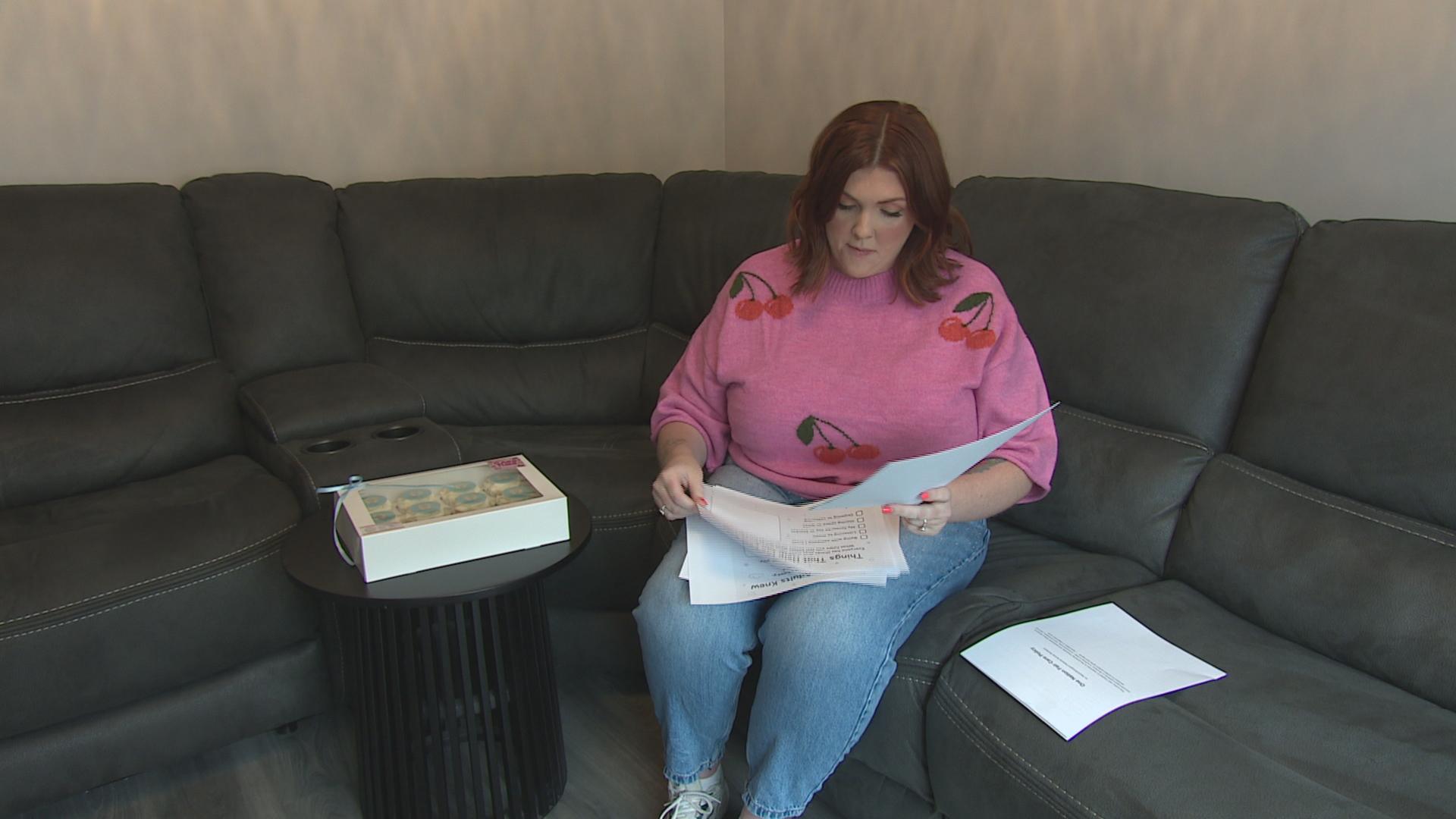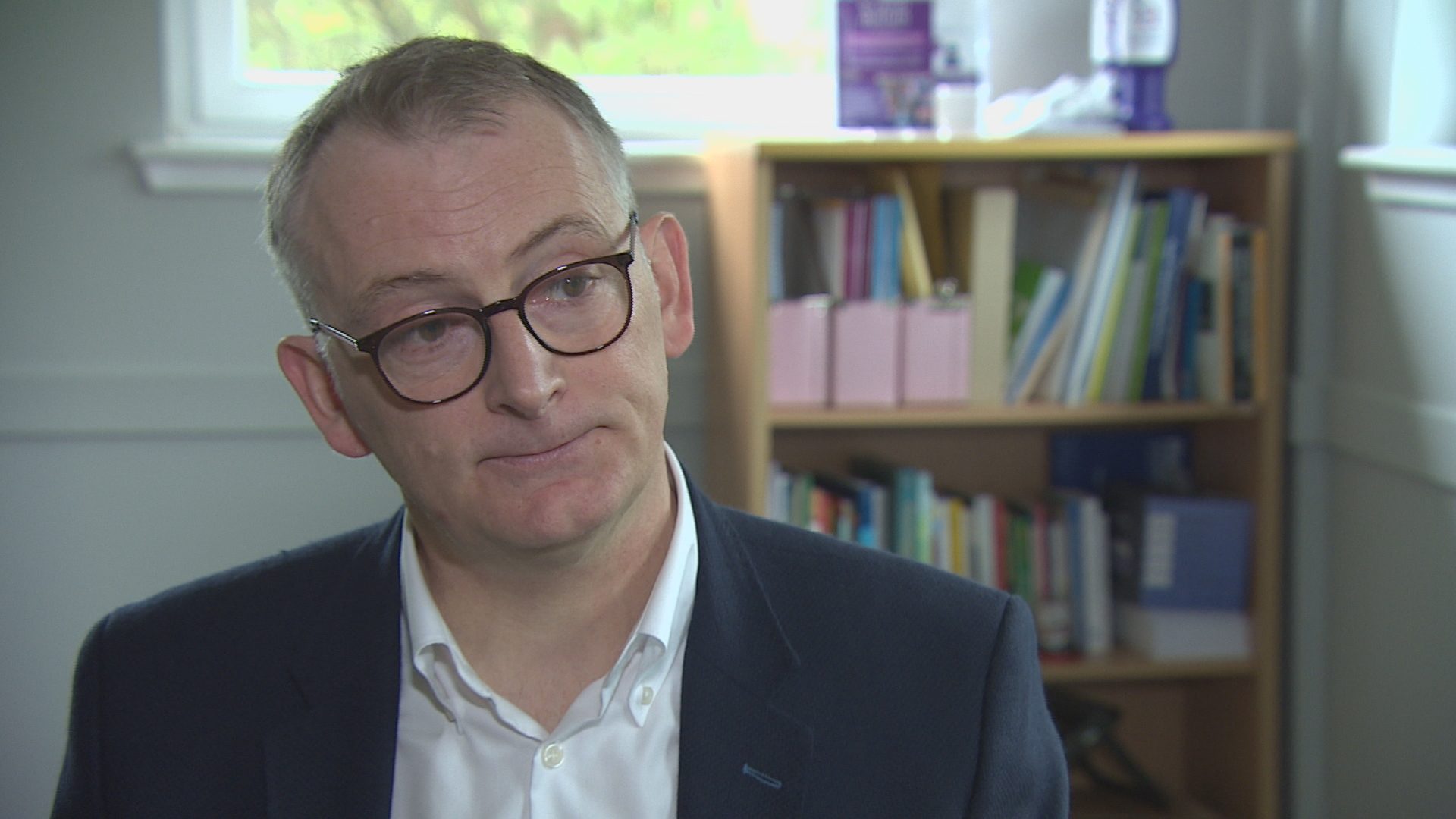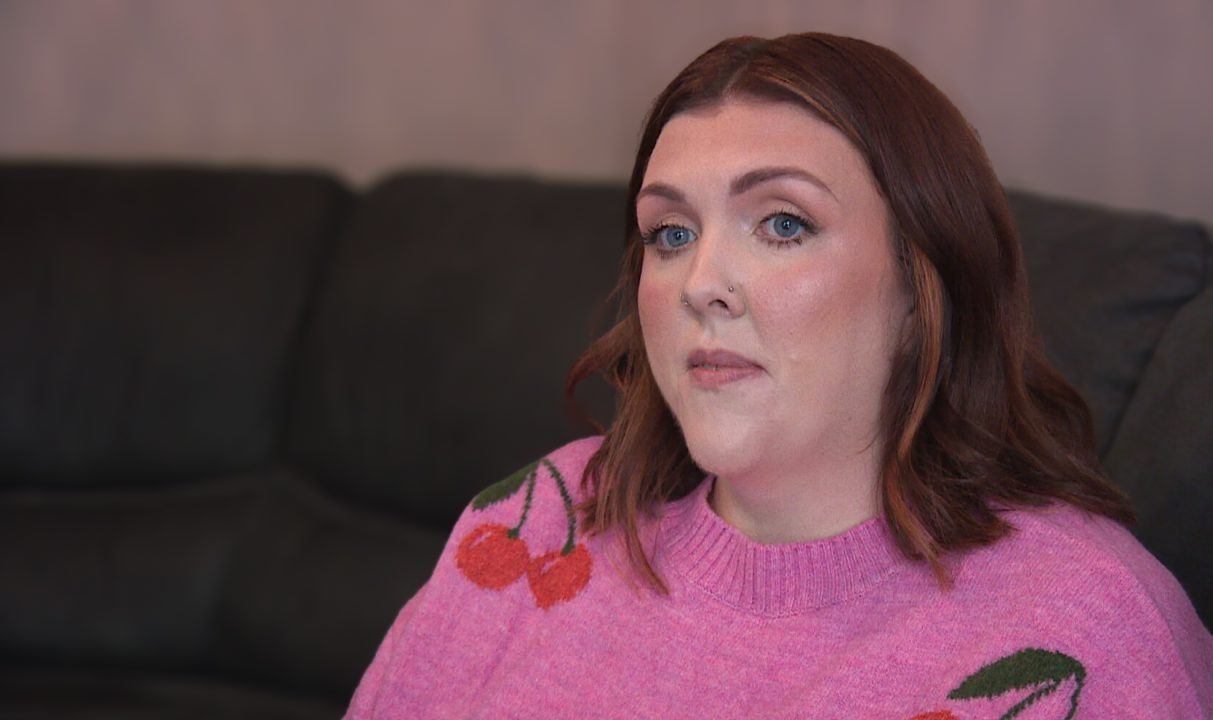A Lanarkshire mum living with ADHD says she has to pay £200 every month for medication despite her private diagnosis being accepted by an NHS psychiatrist.
Gemma Wardlaw turned to private healthcare in January after years of struggling with undiagnosed ADHD – a neurodevelopmental condition marked by symptoms such as difficulty concentrating, hyperactivity, and impulsive behaviour.
Her diagnosis followed a thorough assessment process that involved several evaluations and input from her husband and mother.
Gemma says she was initially told by her GP that shared care arrangements could be made after her diagnosis.
However, in May she received a letter saying the GP practice would not proceed with shared care and that no adult ADHD clinics were operating within the local health board area.
That meant she had to fund her prescription privately.
Gemma, who works as a baker, told STV News: “I was so crushed and emotional. I hadn’t felt like that in a long time. Honestly, at that moment, I felt I was back at square one with no route to care.
“It’s very disheartening. I feel ADHD doesn’t get treated like other conditions. If I had depression or high blood pressure, I’d get access to treatment straight away. But with ADHD, the door’s shut. There’s such a stigma around it.”
Gemma is taking on extra working hours to afford the unexpected cost of her medication.
She added: “With that money, I could have taken my family on another holiday this year. That’s upsetting – I could be making more memories with my children, going to new places. I feel guilty, but in a way, the medication is essential. I can’t be the best mum I can be without it.”
NHS guidance allows GPs to consider shared care agreements following a private diagnosis on a case-by-case basis and advises against blanket refusals.
 STV News
STV NewsGemma told her story as a Holyrood committee launches an inquiry into treatment pathways and support for ADHD and Autism Spectrum Disorder (ASD).
ADHD affects around 5% of school-aged children and between 2.5% and 4% of adults. ASD is a lifelong developmental condition that affects communication, interaction, and information processing, with an estimated prevalence of about 3% in the population.
Gemma says she has experienced ADHD symptoms since the age of nine.
“I struggled with sleep for years, and found it hard to complete even basic tasks, like work around the house. I’d get overwhelmed very easily. I missed appointments, let customers down by missing orders, and lost things constantly.
“Since starting medication, my eating has improved significantly. You have to eat daily – even that was exhausting for me.”
Gemma is also a mother to two neurodiverse children, who had to wait six years for their own diagnoses.
“My eldest was diagnosed earlier this year through the NHS, and my youngest is currently at the top of the list and undergoing assessment,” she said.
Her family’s experiences have led her to launch The Fair Care Circle, an online support group for the neurodivergent community.
Gemma lodged formal complaints with the GP surgery and NHS Lanarkshire, and submitted a Subject Access Request for her medical records and related correspondence, some of which she says remains outstanding.
She also claims that her chosen GP had never seen her diagnosis or medication titration plan.
Gemma has taken her case to the Scottish Public Services Ombudsman, which is now reviewing it.
Reflecting on the past few months, she said: “I hit a wall and went right back to how I was before. I was struggling with work – people noticed the impact it was having on me.”
Gemma says she has heard from many others across Scotland facing similar difficulties accessing NHS ADHD care after a private diagnosis.
“It’s a widespread problem,” she said. “There’s no consistency with policies across GP practices. It’s like a postcode lottery. They’re supposed to follow NHS board guidelines and avoid blanket refusals, but that’s not happening.”
She is building a network of resources for individuals and families affected by ADHD and is campaigning for a national, consistent policy on ADHD care.
“I want a framework that ensures all patients, regardless of postcode or route to diagnosis, are treated with dignity, equality, and transparency,” said Gemma. “Everyone deserves a fair chance.”
‘People are being left in limbo’
 STV News
STV NewsJoe Long, director of practice and innovation for Scottish Autism, describes the situation for people seeking referrals for ADHD and autism diagnoses and treatment as a “crisis”.
“It’s really inconsistent across Scotland,” he said. “Many people face difficulties just getting referred in the first place. One key issue is poor information and communication – understanding when they might be seen, what’s involved, who they will see.
“We’re also finding that once people have assessment and diagnosis, there isn’t really adequate post-diagnostic support to make sense of that, to find out how to advocate for their needs effectively, and to get adjustments for their education setting or their workplace.”
Joe highlighted the financial burden many are facing by going down the private route.
“People are going through real hardship, borrowing money from families, going into debt, or selling possessions just to afford a diagnosis that should be available to them from the state,” he said.
“People are feeling upset and stressed, left in limbo for long periods, with great uncertainty about their future.
“They feel let down by the system and are genuinely concerned on quite a lot of fronts.”
A Scottish Government spokesperson said: “Together with NHS boards, local authorities and community partners we are working to improve access to the best possible neurodevelopmental care and support services for children and adults.
“For many people, such support is likely to be community-based and should be quickly and easily accessible, and is not dependent on a formal diagnosis.
“Where patients have obtained a private diagnoses for conditions like ADHD, it remains the clinical discretion of each individual GP to decide the best course of action for their patients including ongoing care and medication.”
A spokesperson for NHS Lanarkshire said: “It would be inappropriate for us to comment on a case that is being considered by the Ombudsman.
“ However, we can confirm that each shared care prescribing request requires careful consideration and a tri-party agreement between the patient, independent provider and primary care prescriber, with a plan in place of what happens should the patient default or choose to leave private care.
“GPs have no recourse to complaint where an independent provider or patient fails in their side of the agreement. As such, they are not obliged to enter into any shared care agreement with an independent provider. GPs, and other prescribers within primary care, are responsible for the prescriptions they issue. They have to be comfortable with what they are being asked to prescribe. GPs can agree or decline to issue a prescription at their discretion. This applies to any prescription request, whether it be recommended by an NHS clinician or a private clinician.”
Follow STV News on WhatsApp
Scan the QR code on your mobile device for all the latest news from around the country



























